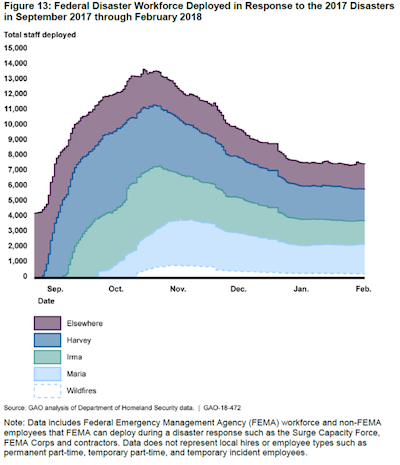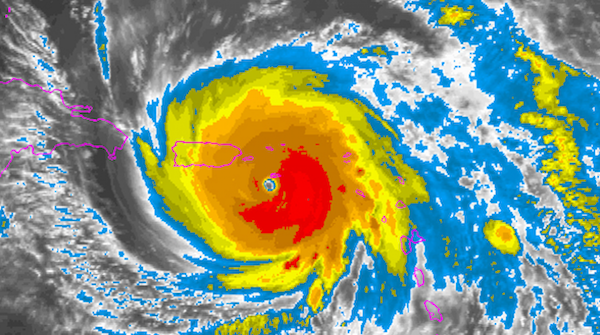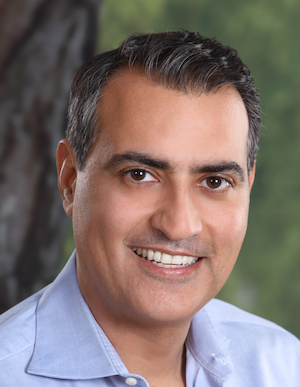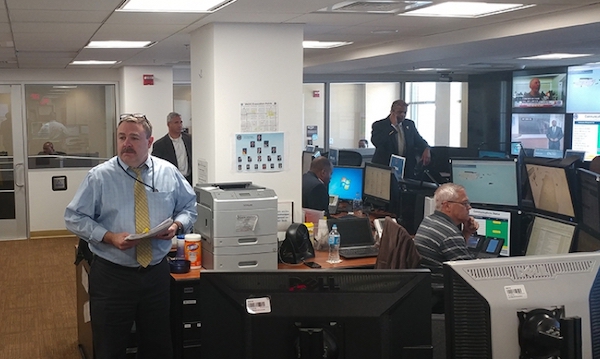US Virgin Islands
See the following -
FEMA Director Urges Americans to Develop “a true culture of preparedness” But No One Is Listening
It looks like preppers aren’t that crazy after all. FEMA’s new director, Brock Long, has repeatedly said that Americans do not have a “culture of preparedness,” something that is much-needed with the startling uptick in natural disasters. Long has only been the director of FEMA since June 20 of this year and already has had to deal with a historic number of disasters in this short period of time. It appears that Mr. Long has a mindset of self-reliance based on a couple of recent statements he has made to the media, but the MSM doesn’t seem too interested in his ideas about fostering a culture of preparedness, despite the practicality and essential nature of his suggestions...
- Login to post comments
FEMA Was Overwhelmed by Hurricanes and Wildfires in 2017, GAO Says
 The back-to-back devastation of hurricanes Harvey, Irma and Maria, followed by catastrophic wildfires in California, overwhelmed federal disaster responders in 2017, according to a government report released Tuesday. The unprecedented sequence of storms and fires forced Federal Emergency Management Agency staff to jump from one disaster to another and in some cases use uncertified workers to fill key roles. “They were 30% understaffed when Harvey hit,” said Chris Currie, director of emergency management issues at the Government Accountability Office, which wrote Tuesday’s report. “By the time Maria hit Puerto Rico, they were down to the bottom of the barrel.”
The back-to-back devastation of hurricanes Harvey, Irma and Maria, followed by catastrophic wildfires in California, overwhelmed federal disaster responders in 2017, according to a government report released Tuesday. The unprecedented sequence of storms and fires forced Federal Emergency Management Agency staff to jump from one disaster to another and in some cases use uncertified workers to fill key roles. “They were 30% understaffed when Harvey hit,” said Chris Currie, director of emergency management issues at the Government Accountability Office, which wrote Tuesday’s report. “By the time Maria hit Puerto Rico, they were down to the bottom of the barrel.”
- Login to post comments
GWU Milken Institute School of Public Health releases report on deaths due to Hurricane Maria in Puerto Rico and outlines steps to protect the most vulnerable communities from disasters
 In an independent report published today, researchers at the George Washington University Milken Institute School of Public Health (GW Milken Institute SPH) estimated there were 2,975 excess deaths in Puerto Rico due to Hurricane Maria from September 2017 through the end of February 2018. The researchers also identified gaps in the death certification and public communication processes and went on to make recommendations that will help prepare Puerto Rico for future hurricanes and other natural disasters.
In an independent report published today, researchers at the George Washington University Milken Institute School of Public Health (GW Milken Institute SPH) estimated there were 2,975 excess deaths in Puerto Rico due to Hurricane Maria from September 2017 through the end of February 2018. The researchers also identified gaps in the death certification and public communication processes and went on to make recommendations that will help prepare Puerto Rico for future hurricanes and other natural disasters.
- Login to post comments
How Open Government Is Helping With Hurricane Relief in Puerto Rico
 Just weeks after Hurricane Harvey hit Texas, two more "unprecedented" hurricanes made their way to the southeastern United States. Although changes in Hurricane Irma's path spared Florida from the bulk of the damage, both Irma and Maria directly hit Puerto Rico and the U.S. Virgin Islands. Hurricane Maria was particularly devastating for the more than 3.5 million American citizens living in these U.S. Caribbean territories. The CEO of Puerto Rico's sole electric company indicated that the grid had been "basically destroyed." Without electricity, communications were severely limited. In the aftermath of a natural disaster, embracing open government principles—such as open data, collaboration between citizens and government, and transparency—can save lives.
Just weeks after Hurricane Harvey hit Texas, two more "unprecedented" hurricanes made their way to the southeastern United States. Although changes in Hurricane Irma's path spared Florida from the bulk of the damage, both Irma and Maria directly hit Puerto Rico and the U.S. Virgin Islands. Hurricane Maria was particularly devastating for the more than 3.5 million American citizens living in these U.S. Caribbean territories. The CEO of Puerto Rico's sole electric company indicated that the grid had been "basically destroyed." Without electricity, communications were severely limited. In the aftermath of a natural disaster, embracing open government principles—such as open data, collaboration between citizens and government, and transparency—can save lives.
- Login to post comments
U.S. Trying to Find More Doctors to Send to Disaster Areas
A U.S. government program that sends doctors and nurses to disaster zones says it needs more health-care workers, as relief efforts during this hurricane season are near the end of a second month with no end in sight in Puerto Rico and the U.S. Virgin Islands. The National Disaster Medical System, which recently wrapped up big deployments to hurricane-ravaged areas in Texas and Florida, says it will start recruiting more medical professionals in the next few weeks...
- Login to post comments
Using the Latest Advances in Data Science to Fight Infectious Diseases
 One of the most dramatic shifts in recent years that is empowering epidemiologists to be more effective at their jobs is occurring due to improvements in data technologies. In the past, the old "relational" data model dictated that data had to be highly structured, and as a result treated in distinct silos. This made it difficult, if not impossible, to analyze data from multiple sources to find correlations. Epidemiologists would spend many minutes or even hours on each query they ran to get results back, which is unacceptable when you need to test dozens of hypotheses to try to understand and contain a fast-moving outbreak. (Imagine how you would feel if each one of your Google searches took 45 minutes to return!) By contrast, using newer technologies, the same queries on the same hardware can run in seconds. Read More »
One of the most dramatic shifts in recent years that is empowering epidemiologists to be more effective at their jobs is occurring due to improvements in data technologies. In the past, the old "relational" data model dictated that data had to be highly structured, and as a result treated in distinct silos. This made it difficult, if not impossible, to analyze data from multiple sources to find correlations. Epidemiologists would spend many minutes or even hours on each query they ran to get results back, which is unacceptable when you need to test dozens of hypotheses to try to understand and contain a fast-moving outbreak. (Imagine how you would feel if each one of your Google searches took 45 minutes to return!) By contrast, using newer technologies, the same queries on the same hardware can run in seconds. Read More »
- Login to post comments
VA's Hurricane Relief Efforts Extend Beyond Veterans
 The American Legion met with VA leadership on Sept. 29 to learn what humanitarian aid VA is, and has been, providing to hurricane victims in Puerto Rico, the U.S. Virgin Islands, Florida and Texas..."There are 60 civilian hospitals in Puerto Rico, many of which are still inoperative, don't have power or have serious damage. There's only one hospital that is like the beacon in Puerto Rico and that is the VA medical center - seeing people, taking care of everybody we can and feeding everybody we can."..."We did a lot of preparing and started sending stuff down there before the hurricane. Now we're using these resources to take care of non-veterans and civilians until the hospitals - that are either damaged, incapable of operating or we don't know the condition of - come back into the system and then we'll transfer them. It is certainly necessary for a humanitarian effort like this," Loren said...
The American Legion met with VA leadership on Sept. 29 to learn what humanitarian aid VA is, and has been, providing to hurricane victims in Puerto Rico, the U.S. Virgin Islands, Florida and Texas..."There are 60 civilian hospitals in Puerto Rico, many of which are still inoperative, don't have power or have serious damage. There's only one hospital that is like the beacon in Puerto Rico and that is the VA medical center - seeing people, taking care of everybody we can and feeding everybody we can."..."We did a lot of preparing and started sending stuff down there before the hurricane. Now we're using these resources to take care of non-veterans and civilians until the hospitals - that are either damaged, incapable of operating or we don't know the condition of - come back into the system and then we'll transfer them. It is certainly necessary for a humanitarian effort like this," Loren said...
- Login to post comments
What Puerto Rico’s Death Toll from Hurricane Maria Really Tells Us
 The recently released report from the Milken Institute is perhaps the strongest rebuke to date on the impact of Hurricane Maria during the 2017 hurricane season. The report notes nearly 3,000 people have died in Puerto Rico because of the storm. These numbers provide a more accurate depiction of the devastation and lives lost in Puerto Rico. While sad and troubling, it is important to call out that these updated numbers do not even account for the death toll in the U.S. Virgin Islands.
The recently released report from the Milken Institute is perhaps the strongest rebuke to date on the impact of Hurricane Maria during the 2017 hurricane season. The report notes nearly 3,000 people have died in Puerto Rico because of the storm. These numbers provide a more accurate depiction of the devastation and lives lost in Puerto Rico. While sad and troubling, it is important to call out that these updated numbers do not even account for the death toll in the U.S. Virgin Islands.
- Login to post comments